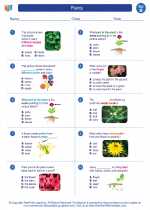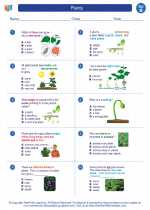What is Chronology?
Chronology is the science of arranging events in the order of their occurrence in time. It involves the study of historical records and artifacts to establish the timeline of events.
Importance of Chronology
Understanding chronology is crucial for making sense of historical events, tracking the evolution of life on Earth, and comprehending the development of human societies and cultures.
Methods of Establishing Chronology
There are several methods used to establish chronology, including:
- Carbon dating: This method is used to determine the age of organic materials based on the decay of radioactive carbon isotopes.
- Stratigraphy: This involves studying the layers of rock and soil to determine the relative ages of different geological formations and archaeological artifacts.
- Written records: Historical documents, inscriptions, and texts provide valuable information for establishing chronology.
- Dendrochronology: The study of tree rings to determine the age of trees and wooden artifacts.
Applications of Chronology
Chronology is applied in various fields, including:
- History: Chronological order is essential for understanding historical events and their impacts.
- Geology: Chronology helps in understanding the Earth's geological history and the evolution of landscapes.
- Archaeology: Establishing the chronology of artifacts and structures is crucial for reconstructing past civilizations.
- Biology: Chronology is used to study the evolution of life forms and the development of ecosystems over time.
Conclusion
Chronology is a foundational concept in the study of history, geology, archaeology, and biology. By understanding the methods of establishing chronology and its applications, we can gain valuable insights into the timeline of events that have shaped our world.
.◂Science Worksheets and Study Guides Second Grade. Plants
Study Guide Plants
Plants  Activity Lesson
Activity Lesson All About Plants
All About Plants  Activity Lesson
Activity Lesson All About Plants
All About Plants  Worksheet/Answer key
Worksheet/Answer key Plants
Plants  Worksheet/Answer key
Worksheet/Answer key Plants
Plants  Worksheet/Answer key
Worksheet/Answer key Plants
Plants  Worksheet/Answer key
Worksheet/Answer key All About Plants
All About Plants  Vocabulary/Answer key
Vocabulary/Answer key Plants
Plants  Vocabulary/Answer key
Vocabulary/Answer key Plants
Plants 

 Activity Lesson
Activity Lesson
 Activity Lesson
Activity Lesson
 Worksheet/Answer key
Worksheet/Answer key
 Worksheet/Answer key
Worksheet/Answer key
 Worksheet/Answer key
Worksheet/Answer key
 Worksheet/Answer key
Worksheet/Answer key
 Vocabulary/Answer key
Vocabulary/Answer key
 Vocabulary/Answer key
Vocabulary/Answer key

The resources above cover the following skills:
Concepts of Life Science (SC1, SC2, SC3)
The student demonstrates an understanding of the structure, function, behavior, development, life cycles, and diversity of living organisms by observing and comparing external features of plants and of animals that may help them grow, survive, and reproduce.